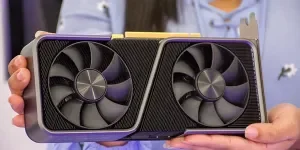In 2025, the smart plug market is set to expand further, driven by advancements in home automation and increased consumer demand. This article provides an in-depth analysis of key factors for selecting smart plugs, aiding professional buyers in making informed decisions. Transitioning seamlessly, we explore compatibility, ease of use, energy monitoring, build quality, and pricing considerations.
Table of Contents:
– Smart Plugs Market Overview
– In-Depth Analysis of the Smart Plug Market
– Key Factors When Selecting Smart Plugs for Home Automation
– Enhancing Home Security with Smart Plugs
– Energy Efficiency and Environmental Impact
– Future-Proofing Your Smart Home
– Customer Support and Warranty
– In Summary
Smart Plugs Market Overview
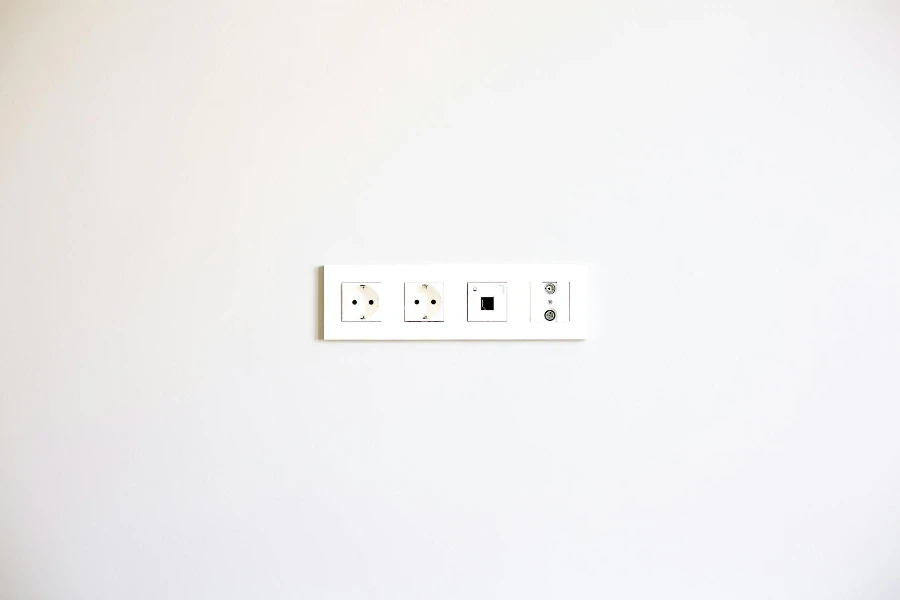
The global smart plug market has experienced substantial growth, driven by the increasing adoption of home automation technologies and smart home devices. As of 2024, the market was valued at approximately USD 15.65 billion and is projected to reach USD 141.27 billion by 2030, growing at a remarkable Compound Annual Growth Rate (CAGR) of 44.2%. This expansion is fueled by the rising demand for energy-efficient solutions, the proliferation of Internet of Things (IoT) devices, and growing consumer awareness of smart home benefits.
In North America, the smart plug market is particularly robust, with the region holding a significant market share due to the early adoption of smart home technologies. The United States and Canada are key contributors to this growth, supported by major smart home product manufacturers and a tech-savvy consumer base. Additionally, the Asia-Pacific region is emerging as a lucrative market, driven by rapid urbanization, increasing disposable incomes, and strong government support for smart city initiatives.
Key players in the market include Belkin International, Inc., BroadLink Technology Co., Ltd., and TP-Link Technologies Co., Ltd. These companies are continuously investing in research and development to introduce innovative products with advanced features, such as energy monitoring, voice control compatibility, and enhanced security measures. The competitive landscape is marked by strategic partnerships, product launches, and mergers and acquisitions to strengthen market positioning and expand product portfolios.
In-Depth Analysis of the Smart Plug Market
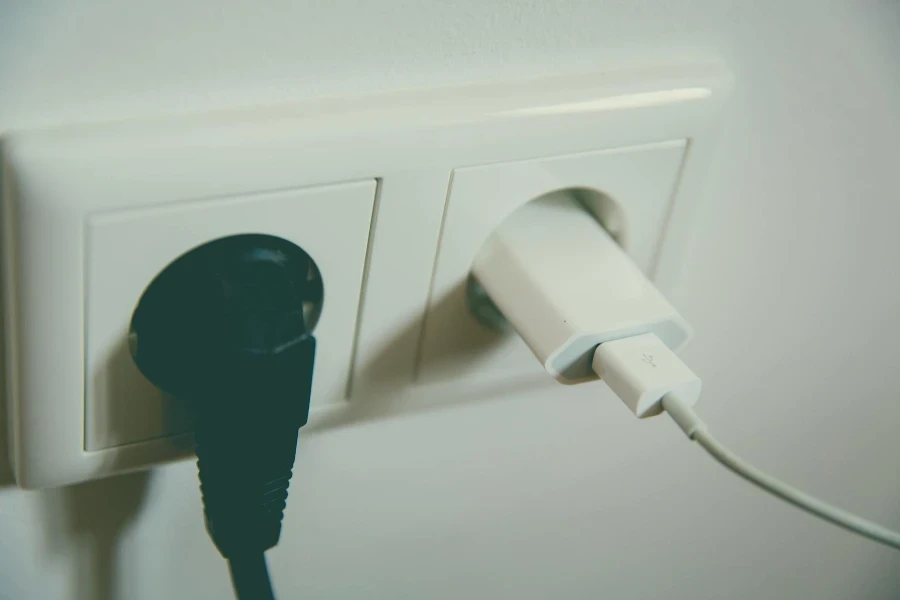
The smart plug market is characterized by several key performance benchmarks and market dynamics. The rapid adoption of IoT and smart home ecosystems has significantly influenced market growth. Smart plugs offer a convenient solution for controlling and automating household appliances, leading to increased consumer demand. The integration of voice-controlled digital assistants, such as Amazon Alexa and Google Assistant, has further enhanced the functionality and appeal of smart plugs.
Economic factors, such as rising energy costs and the focus on energy conservation, are driving consumers to adopt smart plugs for better energy management. Seasonal demand patterns also play a role, with higher sales observed during holiday seasons and promotional events. Distribution channel preferences are shifting towards online platforms, offering consumers a wide range of options and competitive pricing.
Recent innovations in the smart plug market include the development of Wi-Fi and Bluetooth-enabled plugs with advanced features like real-time energy monitoring, surge protection, and child lock functionalities. The product lifecycle stages vary, with early adopters and innovators driving initial market growth, followed by the early majority as the technology becomes more mainstream. Digitalization and social trends, such as the increasing reliance on smartphone apps and the desire for connected living, are further propelling market expansion.
Environmental regulations and sustainability concerns are also shaping the market, with manufacturers focusing on eco-friendly designs and energy-efficient solutions. Customer pain points, such as compatibility issues and cybersecurity vulnerabilities, are being addressed through continuous product improvements and enhanced security protocols. Brand positioning strategies emphasize reliability, ease of use, and integration with existing smart home systems, while differentiation strategies focus on unique features and value-added services.
Niche markets, such as smart plugs for industrial and commercial applications, are gaining traction, offering opportunities for market players to diversify their product offerings. The ability to remotely manage and monitor energy consumption in industrial settings presents significant cost-saving potential and operational efficiencies.
Key Factors When Selecting Smart Plugs for Home Automation
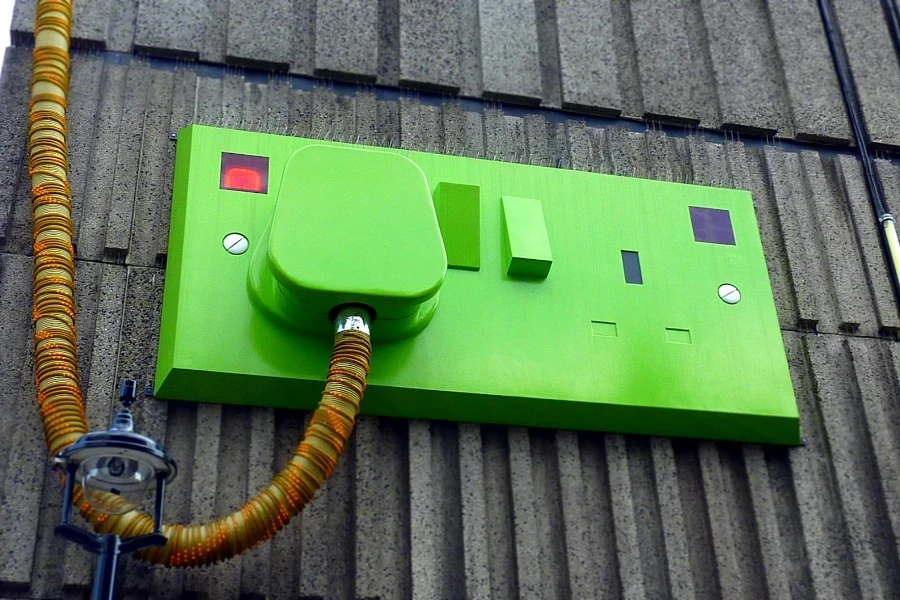
When choosing smart plugs for home automation, several key factors come into play. These factors ensure that the smart plug you select meets your specific needs and integrates seamlessly into your existing smart home ecosystem. Below, we delve into the most critical considerations, including compatibility, ease of use, energy monitoring, build quality, and price range.
Compatibility with Smart Home Ecosystems
Compatibility is one of the most crucial factors to consider when selecting a smart plug. Ensure that the smart plug is compatible with your existing smart home ecosystem, whether it be Amazon Alexa, Google Assistant, Apple HomeKit, or Samsung SmartThings. For instance, if you primarily use Amazon Alexa, a smart plug like the Wemo Mini Smart Plug or TP-Link Kasa Smart Wi-Fi Plug Mini would be ideal as they both support Alexa integration.
Compatibility extends beyond voice assistants. Ensure the smart plug can integrate with other smart devices such as smart lights, thermostats, and security systems. This integration allows for seamless automation routines, such as turning off all lights and appliances when you leave the house or setting specific devices to turn on when you arrive home.
Ease of Use and Installation
Ease of use and installation is another vital consideration. A smart plug should be user-friendly, with a straightforward setup process that doesn’t require technical expertise. Most smart plugs come with companion apps that guide you through the installation process step-by-step. For example, the Wemo Mini Smart Plug offers a hassle-free setup via the Wemo app, making it accessible even for those who are not tech-savvy.
Look for smart plugs that offer features like remote control, scheduling, and automation through an intuitive app interface. The TP-Link Kasa Smart Wi-Fi Plug Mini, for instance, provides remote control and scheduling via the Kasa app, allowing you to manage your devices from anywhere. Additionally, consider whether the smart plug supports voice commands for hands-free operation.
Energy Monitoring Capabilities
Energy monitoring is a valuable feature that allows you to track the energy consumption of connected devices. This feature can help you identify energy-hogging appliances and optimize your energy usage, potentially reducing your electricity bills. Smart plugs with energy monitoring capabilities provide real-time data and historical usage reports through their companion apps.
For example, some models offer detailed insights into energy consumption, helping you make informed decisions about your energy usage. This feature is particularly beneficial for eco-conscious users looking to minimize their carbon footprint. When selecting a smart plug, consider whether energy monitoring is a priority for you and choose a model that provides accurate and detailed energy usage data.
Build Quality and Safety Standards
The build quality and adherence to safety standards are paramount when selecting a smart plug. Ensure that the smart plug is made of high-quality materials and has a robust design to withstand daily use. Look for certifications such as UL (Underwriters Laboratories) or ETL (Intertek), which indicate that the product meets stringent safety standards.
Safety features such as overload protection, surge protection, and fire resistance are essential to prevent electrical hazards. For instance, some smart plugs are designed with built-in safeguards to protect against overheating and power surges. Investing in a well-built, certified smart plug ensures the safety of your home and the longevity of the device.
Price Range and Budget Considerations
Smart plugs come in various price ranges, from budget-friendly options to premium models with advanced features. When selecting a smart plug, consider your budget and the features you need. Basic models, such as the TP-Link Kasa Smart Wi-Fi Plug Mini, offer essential functionalities like remote control and scheduling at an affordable price point.
On the other hand, higher-end models may include additional features such as energy monitoring, advanced automation, and compatibility with a broader range of smart home ecosystems. Evaluate the features that are most important to you and choose a smart plug that offers the best value within your budget.
Enhancing Home Security with Smart Plugs
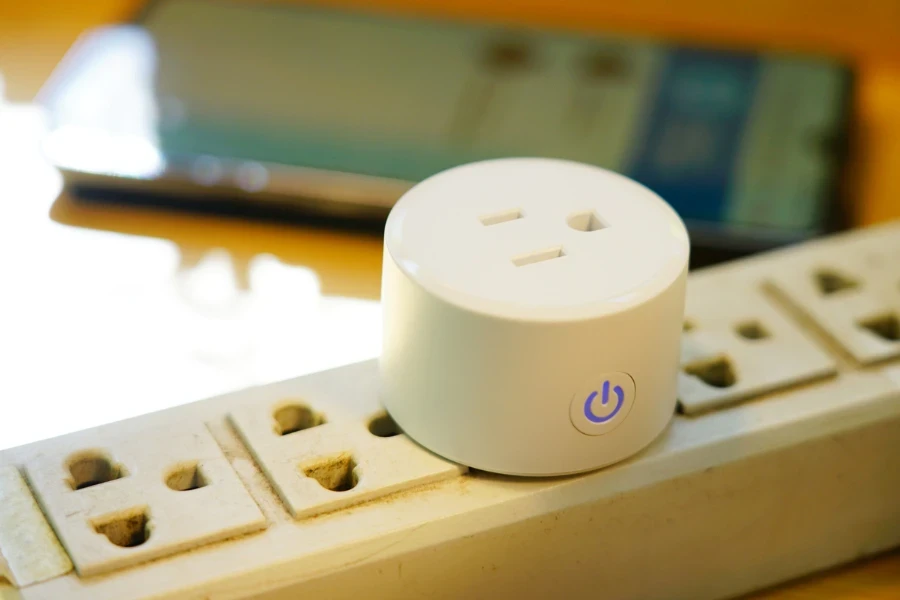
Smart plugs can significantly enhance home security by integrating with other smart security devices and enabling automation routines that deter intruders. For instance, you can program smart plugs to turn on lights at random intervals when you’re away, creating the illusion that someone is home. This can be achieved by setting schedules or using the ‘away’ mode available in some smart plug apps.
Additionally, smart plugs can be integrated with security cameras and motion sensors. When motion is detected, the smart plug can turn on connected lights or appliances, alerting you to potential intruders and possibly scaring them off. For example, integrating a smart plug with a Ring Video Doorbell Pro 2 can enhance your home security setup, providing real-time notifications and triggering lights when someone approaches your door.
Energy Efficiency and Environmental Impact
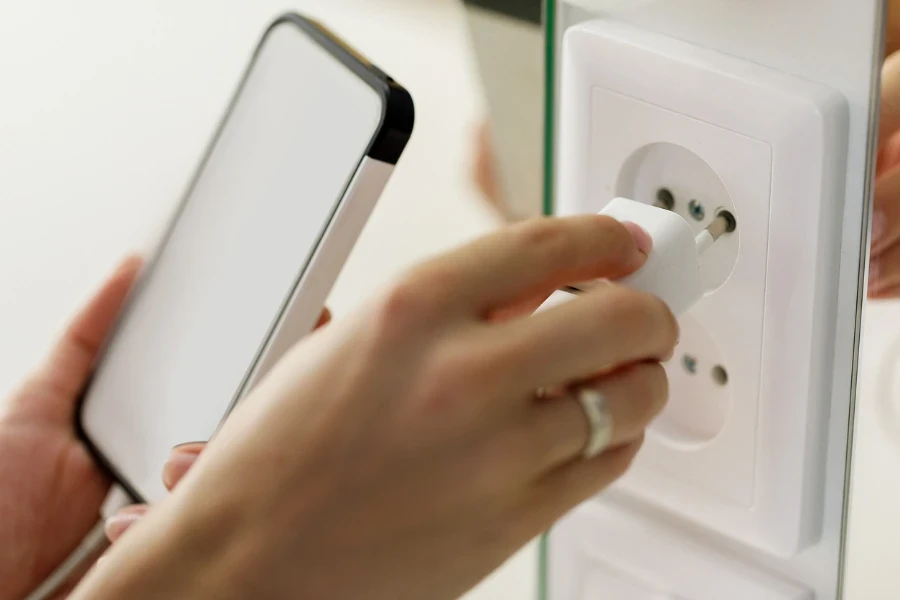
Smart plugs contribute to energy efficiency by allowing you to monitor and control the power consumption of connected devices. By identifying and reducing the use of energy-hogging appliances, you can lower your electricity bills and reduce your environmental impact. Many smart plugs offer features such as auto-off timers and scheduling, which help ensure that devices are not left on unnecessarily.
For example, you can set a smart plug to turn off your coffee maker automatically after a certain period, preventing it from consuming power all day. Additionally, some smart plugs provide detailed energy usage reports, enabling you to track and optimize your energy consumption over time. By leveraging these features, you can create a more energy-efficient and environmentally friendly home.
Future-Proofing Your Smart Home

When selecting smart plugs, consider their compatibility with future upgrades and emerging technologies. Look for smart plugs that support firmware updates, which can provide new features and enhancements over time. This ensures that your smart plugs remain compatible with future smart home devices and technologies.
Additionally, consider the scalability of your smart home setup. Choose smart plugs that can easily integrate with a growing number of devices and support advanced automation routines. This future-proofing approach ensures that your smart home can evolve and adapt to new technologies, providing long-term value and functionality.
Customer Support and Warranty
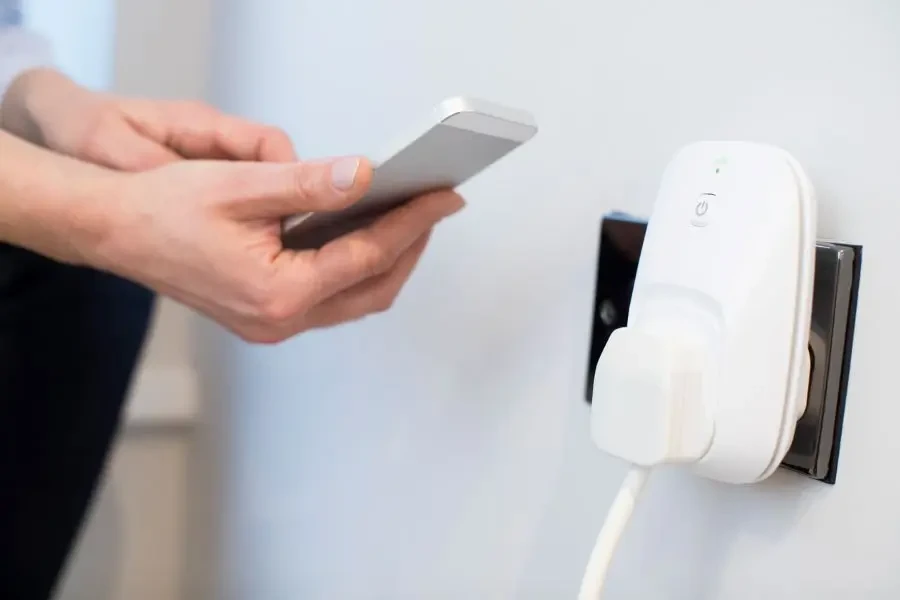
Reliable customer support and a comprehensive warranty are essential considerations when selecting a smart plug. Choose a brand that offers robust customer support, including access to online resources, troubleshooting guides, and responsive customer service representatives. A good warranty provides peace of mind, covering defects and malfunctions over a specified period.
For instance, brands like TP-Link and Belkin are known for their excellent customer support and comprehensive warranties, ensuring that you receive prompt assistance and coverage for your smart plug investment. Check the warranty terms and customer support options before making a purchase to ensure a smooth and hassle-free experience.
In Summary
Selecting the right smart plug for home automation involves considering factors such as compatibility, ease of use, energy monitoring, build quality, price range, and additional features like security integration and future-proofing capabilities. By evaluating these factors, you can choose a smart plug that meets your needs and enhances your smart home experience. Remember to prioritize safety, energy efficiency, and reliable customer support to ensure a seamless and secure smart home setup.

